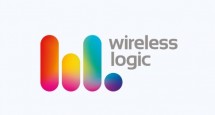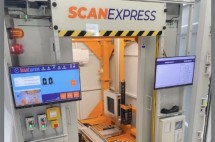Imposing E-Money Content Fee Can Be Counterproductive
By : Herry Barus And Aldo Bella Putra | Thursday, September 21 2017 - 22:00 IWST

Bank BRI Bidik Peningkatan Penggunaan E-money Brizzi Sekitar 30%
INDUSTRY.co.id - Jakarta - Bhima Yudhistira, an economist at the Institute for Development of Economics & Finance (INDEF), said that the decision by Bank Indonesia to allow banks to charge electronic e-money could contradict efforts to encourage people to intensify non-cash transactions.
"Initially had asked the community more actively use electronic money and encourage non-cash movement, but now it is charged," said Bhima asked his comments on the BI Board of Governors Regulation related to the cost of electronic money balance, in Jakarta, Thursday (21/09/2017)
Bhima said that the imposition of the cost could be a disincentive, especially ahead of the implementation of electronification of 100 percent payments of toll services on October 31, 2017. The charge of the content balance is feared to make people reluctant to use electronic money and return to cash transactions.
Supposedly, he said, BI and the banking industry provide incentives for the community because, so far, banks have benefited from the sale of electronic currency card prime.
"Should the profit from the sale of e-money 'starter' card no longer need to charge the cost of the balance although only Rp1.000 once transaction," he said.
Better, he said, BI and banking electronic money publishers and transport service operators or operators in other real sectors put forward the scheme of sharing the burden of investment cost of electronic money infrastructure. It's like what happened in Hongkong. That way, the burden of the cost borne by banks can be reduced so it can actually give a discount to the community.
The scheme of "sharing cost" with the transport operator actually reduces the burden of the card issuing bank costs, so the bank can provide discounted prices to consumers," he said.
Read Also
TDL Records New Revenue Record of IDR 25 Trillion in 2024 Ahead of…
Celebrating 65 Years of Indonesia - Cambodia Relations: Indonesian…
President Jokowi Receives 2023 Audit Reports from BPK
SKB Food Collaboration with Bank Mandiri Facilitates Access to MSME…
Sri Mulyani: 2023 Budget Must Stay Flexible in Facing Global Economic…
Today's Industry

Jumat, 02 Mei 2025 - 10:46 WIB
Binawan and Government Support Indonesian Nurses in Europe through Scholarships
In the midst of the viral #KaburAjaDulu hashtag as a symbol of the young generation's disappointment with domestic working conditions, Binawan responded with real action: dispatching Indonesian…

Jumat, 28 Maret 2025 - 22:21 WIB
SUNeVision Initiates MEGA IDC Phase Two Development
SUNeVision, the technology arm of Sun Hung Kai Properties (SHKP), today announced the commencement of construction for Phase Two of MEGA IDC in Tseung Kwan O. As Hong Kong's largest data centre…

Jumat, 28 Maret 2025 - 22:00 WIB
Wireless Logic Selected By Thales As IoT Connectivity Partner
Wireless Logic, a global leader in IoT connectivity solutions has been selected by Thales, a global leader in advanced eSIM technologies, to enable secure, scalable and resilient IoT connectivity…

Jumat, 28 Maret 2025 - 21:53 WIB
Microvista Expands International Presence with Mobile CT System ScanExpress
The German specialist in industrial computed tomography and non-destructive testing, Microvista, announces the European expansion of its innovative mobile CT system, ScanExpress. The system…

Jumat, 28 Maret 2025 - 21:44 WIB
Turning Loss into Profit, INOV Optimistic in Maintaining Positive Performance this Year
PT Inocycle Technology Group Tbk (INOV:IJ) Indonesia's leading and largest PET waste recycling Company managed to book sales of IDR 629 Billion in 2024, an increase of 4.8% compared to the previous…
















News Comment